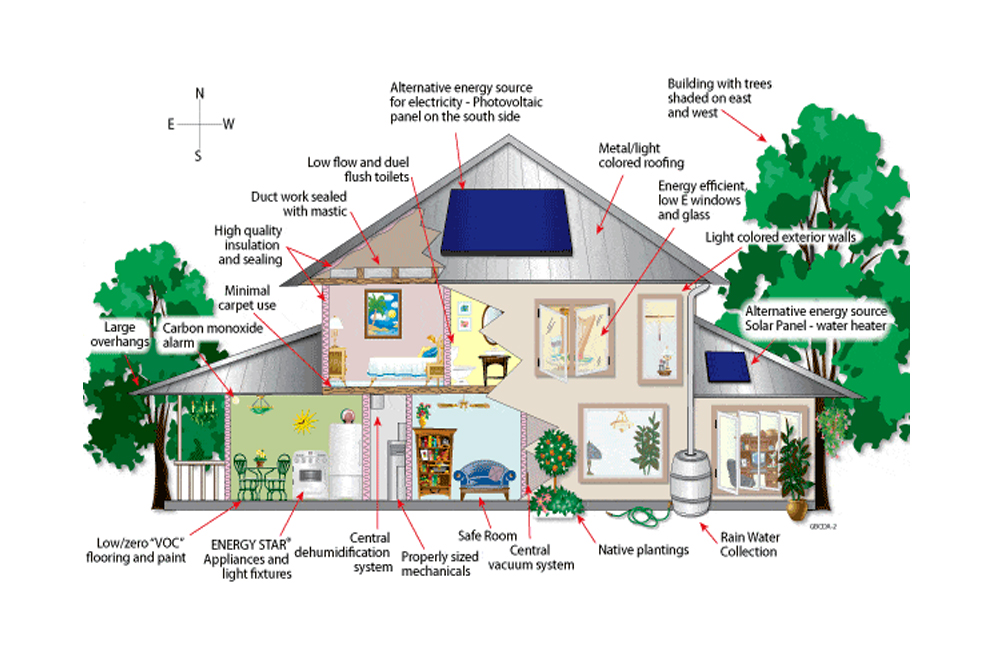Being a contractor is big business. Combine that with the safety concerns surrounding work sites or buildings, and it isn’t surprising that many states regulate contractors operating within their borders. However, like many other things, contractor licensing requirements vary widely around the country. About the only thing in common is the need to get a business license or registration. Here is a listing of the requirements in each state and the District of Columbia. We’ve also included links to more resources for each.

Table of Contents
ToggleAlabama
Alabama has strict requirements for general contractors. Licenses are required for general contractors performing work with a labor and materials cost of $50,000 or more for commercial buildings and $10,000 or more for residential. You’re also required to get a license as a subcontractor. There are testing requirements based on your scope of business. Your business entity must be registered with the Secretary of State, have an accountant, and carry all required insurance. Reciprocity with MS, TN, AR, LA. Forms and more info are on the Licensing Board website.
Alaska
Everyone doing construction work in Alaska must have a license, including journeymen and tradespeople. There are different types available, ranging from general contractors with residential endorsement all the way to a “handyman” license. For a residential endorsement, you must have taken a particular class covering cold weather construction methods. Handymen are defined as those doing jobs worth $10,000 or less. To obtain a license, you’ll need to obtain a business license, liability/workman’s comp insurance, and pay a bond to the state. Forms and more info are at the Department of Commerce.
Arizona
Arizona requires a contractor’s license to do any construction work, no matter how small the value. To get one, you’ll need to pass a business management exam, the professional exam for your business specialty, be registered as a business, and pass a criminal background check. There’s also a bond paid to the state. Plumbers and electricians have separate licensing. Forms and more details can be found at the Arizona Registrar of Contractors.
Arkansas
Arkansas licensing is relatively simple and only required if construction or demolition projects are worth $50,000 or more. Plumbers, electricians have their own licensing. Contractors must take Arkansas licensing exam, be bonded and insured, have a business license, an accounting report, and references. More information is available at the Contractors Licensing Board.
California
Any job over $500 requires a contractor’s license, with a separate process for plumbers and electricians. Requirements include several examinations, general and specialty-related, four years of verified experience as a laborer, fingerprinting, a business license, and proof of workman’s compensation insurance. You’ll also need to post a bond. Forms are at the Contractor’s State Licensing Board.
Colorado
Colorado general contractors should look for local requirements. That’s because each municipality has control of the licensing for their jurisdictions. However, you are typically required to have a legal business entity and worker’s compensation insurance.
Connecticut
Connecticut is more complicated than most, with several contractor types. Major contractors build an entire structure, both residential and commercial. New Home Construction contractors register with the state rather than getting a license. Home improvement contractors also register. For major contractor licenses, you will need references, letters of credit from your bank, business information, and insurance coverage. Trades are licensed separately.
Delaware
Delaware requires a license for most construction jobs, with separate licensing for electrical, plumbing, HVAC, water drilling, and pump installers. In Delaware, the contractor registration and licensing are the same process and form. No exam is needed, just a business registration, insurance (liability, workman’s comp, unemployment), and, for nonresident contractors, a surety bond.
District of Columbia
Two kinds of licenses are available: one for home improvement contractors, and another for general contractors or construction managers. General contractors just need corporate registration, liability insurance, tax registration, and contract information. Home improvement contractors also need a background check and a salesperson. Trades are licensed separately.
Florida
In Florida, licenses are required for both construction and improvements. Types include building contractor (large residential and commercial buildings), residential contractor (smaller residential), and general contractor (any building type or size). Choose a certified license (valid FL wide) or registered license (local only).
Requirements vary based on scope. Everyone needs evidence of good credit or a bond, proof of education or experience, background check, insurance, and business registration. A certified license requires passing a contractor’s exam. Find your forms through the Department of Business and Professional Regulation.
Georgia
Any construction work over $2500 must be done by a contractor. Both residential and general contractor licenses are available. Some municipalities require additional registration. For a GA license, you need a bond, relevant work experience or education, pass an exam, meet financial requirements based on license type, and proof of insurance. Residential licenses have the same set of requirements with different limits. Note that you can also get a license for small projects.
Hawaii
General contractors in Hawaii have relatively easy requirements. First, you must have a reputation for honesty. Then, you’ll need to have four years of construction supervisory experience, liability and workman’s compensation insurance, proper business registration, and pass the appropriate exam for your specialty. Proof of financial responsibility is required, you need a place of business, and most municipalities require a bond. Trades are licensed separately. Forms can be found here.
Idaho
Licensing only required for electrical, plumbing, public works and construction managers. Otherwise, you only need to register your business with the state and prove you have proper liability, workman’s compensation insurance.
Illinois
Only plumbing and roofing contractors need state licenses, the rest are municipal licenses. However, all businesses must be registered with the state. For Chicago licensing information, check out this link. Everywhere else, check with the town hall.
Indiana
Indiana does not require general contractor licenses at the state level, only for trades. However, you should ensure your business complies with Indiana registration and revenue laws, including the carrying of business insurance. Also, local municipalities have contractor licensing requirements. The most notable are Indianapolis, Evansville, and Fort Wayne.
Iowa
Iowa has a “construction contractor’s license.” This requires liability, workman’s compensation and unemployment insurance, a background check, pass an exam, and present a surety bond. Tradesmen have different licensing requirements. Forms for general contractor licenses are here.
Kansas
In Kansas, there is no statewide contractor licensing, even for tradesmen. However, contractors are legally required to be registered businesses, be bonded and insured, and comply with taxation regulations. Be sure to check with the municipality where you are planning to work for local requirements.
Kentucky
All others must go through their local municipalities. However, all Kentucky businesses are required to have workman’s compensation insurance and register their business entity. For most municipalities, proof of these requirements is necessary to get a contractor’s license, and other criteria are basic.
Louisiana
In Louisiana, you need a contractor’s license any time you have an employee or subcontractor working with you. There are three basic license types: Commercial (value over $50,000), Residential (over $75,000), and Home Improvement registration (value $7,500-75,000). You’ll also need tradesman licenses as appropriate, and riders for mold remediation or hazmat removal. All license types require an exam or exams relevant to work scope, proof of liability and workman’s compensation insurance, prove financial stability, and demonstrate the business is registered.
Maine
Only a few construction trades require state licensing in Maine, including plumbers, electricians, and contractors. However, all businesses must have a business license and proper insurance. All jobs over $3,000 must have a written contract. Some municipalities have additional requirements.
Maryland
Besides licenses for electrical, plumbing and HVAC, Maryland only requires licenses for “home improvement” contractors. These are needed to work on residential buildings with fewer than four units. To get one, you’ll need to pass an exam, prove financial responsibility, get a surety bond, provide evidence of insurance, and present a business license. You can find the forms here.
Massachusetts
In Massachusetts, most construction and trades work requires a license. General contractors are referred to as Construction Supervisors, unless they only do improvements on residential buildings of two or fewer units. Then, they’re called Home Improvement Contractors. The latter is only a registration unless certain standards are met. To register, only business license and insurance are required, along with a filing fee.
Construction supervisors come in three types: restricted (2 family buildings), unrestricted (larger buildings), and specialty (plumbing, electrical, etc). To become a contractor, you will have to pass an exam, prove you have three years of relevant experience, and provide your business information.
Michigan
There are several types of licenses available. Residential contractor licenses cover the building of new homes, while “maintenance and alterations” licenses allow jobs like carpentry, masonry, or house painting (you must apply for each specialty). Finally, there are commercial builder licenses.
For each contractor type, there are minimum requirements. Everyone has to pass a relevant contractor’s exam and have taken 60 hours of coursework. Prove you have proper insurance and submit appropriate applications. More information is available here.
Minnesota
Electricians, roofers, and most plumbers need a contractor’s license. Other than that, a license is only needed if you perform two or more construction skill areas. Licensing requires registering a business, taking exams in the service areas provided, and certificates for workman’s compensation and liability insurance. Specialty-specific information can be found here.
Mississippi
Most work worth more than $10,000 will require a license. In Mississippi, getting a contractor’s license of any kind requires passing a test in business law. Licenses come in residential and commercial types, and are divided by classification. To get a license, you will need to carry liability insurance and be registered with state tax authorities. More information is found here.
Missouri
No statewide contractor’s license is available in Missouri, even for electricians or plumbers. Rather, you are required to register with the state as a business. In addition, you will have to get a local contractor’s license anywhere you work.
Montana
In Montana, a general contractor must register with the state. This is as simple as setting up the business entity, getting workman’s compensation and liability insurance, and paying a fee. Independent contractors must file an extra form. Plumbers and electricians are the only specialties with an exam. More information is here.
Nebraska
Nebraska has few state-level requirements. First, you must register your business with the state. Get a worker’s compensation number, liability insurance, and unemployment coverage. Then, unless you’re an electrician there’s no exam. Just file for recognition through the Department of Labor, and it’s done.
Nevada
Nevada contractors come in several types: “general engineering contractor,” “general building contractor,” and “specialty contractor (trades).” Requirements for all types include a general exam, trade specific exam(s), surety bond, evidence of financial responsibility, proof of four years’ work experience, background check, and some fees. Forms are available here.
New Hampshire
Most contractors do not require registration or licensing at the state level. Exceptions are electrical, plumbing, and asbestos/lead abatement. Some municipalities have special requirements, such as in Manchester. Also, check here to see if you need to register as a business.
New Jersey
Becoming a contractor in New Jersey only requires registration, except for plumbing and electrical. Registering is easy: provide the Division of Consumer Affairs with your business license and evidence of bonding and insurance.
New Mexico
New Mexico requires contractors to take an exam, and to have either two or four years of work experience depending on specialty. You must be registered as a business, have a surety bond, and proof of financial responsibility. Evidence of all these steps must be included in the packet. Forms are here.
New York
Unless your work involves asbestos or crane operations, you don’t need a state license. However, many cities require a license, including New York City. For those cities, little more than registration and insurance are typically required.
North Carolina
North Carolina has separate licensing for general contractors and trades. For general contractors, you must have a business license and all related paperwork. You’ll need to choose a license classification based on the size of jobs you’re doing, then take an exam. Financial statements and surety bonds are required, as is worker’s compensation coverage. More information is available here.
North Dakota
Doing any job worth $4,000 or more requires a license. Getting one is easy: register your business, get the legally required insurance (workman’s comp, liability, unemployment), letter of good standing with workforce safety, and a fee to match the class of license you want. License classes go by the maximum job value. Plumbers, electricians have a different process. More information here.
Ohio
Ohio has no statewide general contractor license but does license some specialties. Licensure of GCs is handled on a local level. However, you must register the business.
Oklahoma
Only specialty trades are licensed by the state in Oklahoma. Out of state contractors must get an Oklahoma business license to operate through a separate process from Oklahoma businesses. In both cases, you must have insurance and a surety bond.
Oregon
Oregon has separate procedures for general contractors and trades. General contractors have a choice of several commercial and residential endorsements. For all types, you must take a class and then an exam. Your business must be registered, and you need a surety bond, liability insurance, workman’s comp, and tax registration. Then, file a form, which is available here.
Pennsylvania
If you do projects worth more than $5,000, you must register with the Attorney General. Other than that, general contractors and tradesmen are regulated on a local level. In addition, businesses must be properly registered in the state.
Rhode Island
There are three types of contractors in Rhode Island: General, roofing, and underground utility. General contractors only need to take a five-hour class and then register with the state. This requires proving you have insurance and a business license. Underground utility contractors and roofers also need to take an exam. You can get information here.
South Carolina
In South Carolina, you need a license to do anything over $5,000. There are three types: General and Mechanical, Residential and Manufactured Housing, and Residential Specialty. All license types require a general law exam and, if needed, a specialty exam. You’ll also have to register with the state, get a surety bond or demonstrate financial responsibility, proof of work experience or training, present insurance information, and submit to a background investigation. More information is here.
South Dakota
Only three specialties require state licenses: plumbing, electrical, and asbestos. The others have local licensing only. Depending on the city you might need to take an exam. With that said, all businesses must still register with the State, which you can do here.
Tennessee
Tennessee licenses contractors for residential work starting at $3,000 value, and others at $25,000 value. A Home Improvement contractor can’t do electrical, plumbing, or HVAC work; these will need a subcontractor. Some municipalities are stricter. There are prime(general) subcontractor, and construction management licenses. Contractors must pass a general law exam, in addition to tests for any desired specialties. Business registration, workman’s compensation, liability insurance, and a bond are needed. Note, some municipalities have added requirements. You can find more information here.
Texas
Plumbing, electrical and some other specialties need a state license. General contractors get licenses from local authorities in Texas. All businesses must be registered with the state, and have a tax identification number.
Utah
Getting a license requires choosing among 23 contractor classifications. Then, you’ll need to take a 25-hour course, pass two exams (contractor, specialty), have at least one year of experience supervising construction and another working, a surety bond, registration of your business, liability insurance, and proof of appropriate tax accounts. Utah has its forms here.
Vermont
There are no general contractor licenses at the state level, but some municipalities require one. Some specialties require licenses or certifications, including plumbing, electrical, asbestos or lead paint, and more. For certifications, there’s an exam unless you have a license from another state. Some specialties allow apprenticeships instead of exams. All Vermont businesses need to be registered with the state and pay taxes. Check with your municipality for additional requirements.
Virginia
In Virginia, there are three license classes depending on the total value of business. You’ll also need more experience to advance from one class to the other. All licenses require a business registration, responsible employees, a contractor’s education course, and exam. Applying involves proving financial responsibility, bonding, insurance, and satisfactory background of management. Forms are here.
Washington
In Washington, some specialties require licensing and others don’t. General contractors and unlicensed specialties only require registration. The process is: register with Department of Revenue, get bonded and insured, and pay an application fee. You can see the forms and licensed specialty list here.
West Virginia
West Virginia tradesmen and general contractors need a license to operate. Getting one requires getting a business license, surety bond, wage bond, insurance for workman’s compensation and liability, and two exams: business law and general contractor (or applicable specialty). You can find more information on the process here.
Wisconsin
For residential contractors in Wisconsin, you need a “Dwelling Contractor” license. If you practice a trade, you’ll need a trade license IN ADDITION to the general license. First, take a 12-hour course and exam, and show the state you’re qualified. This will earn you a “Dwelling Contractor Qualifier” license. Then, get a business license, workman’s compensation insurance, bond, liability insurance, and apply for a “Dwelling Contractor” license if you want to own the business. Some trades require additional licenses. More information and forms are here.
Wyoming
The only state-licensed building trade is electricians. Everyone else is licensed or permitted at the local level. However, you will need to register your business entity and stay in compliance with Wyoming tax laws. On the local level, requirements vary widely, so be sure to check with your intended jurisdiction.






